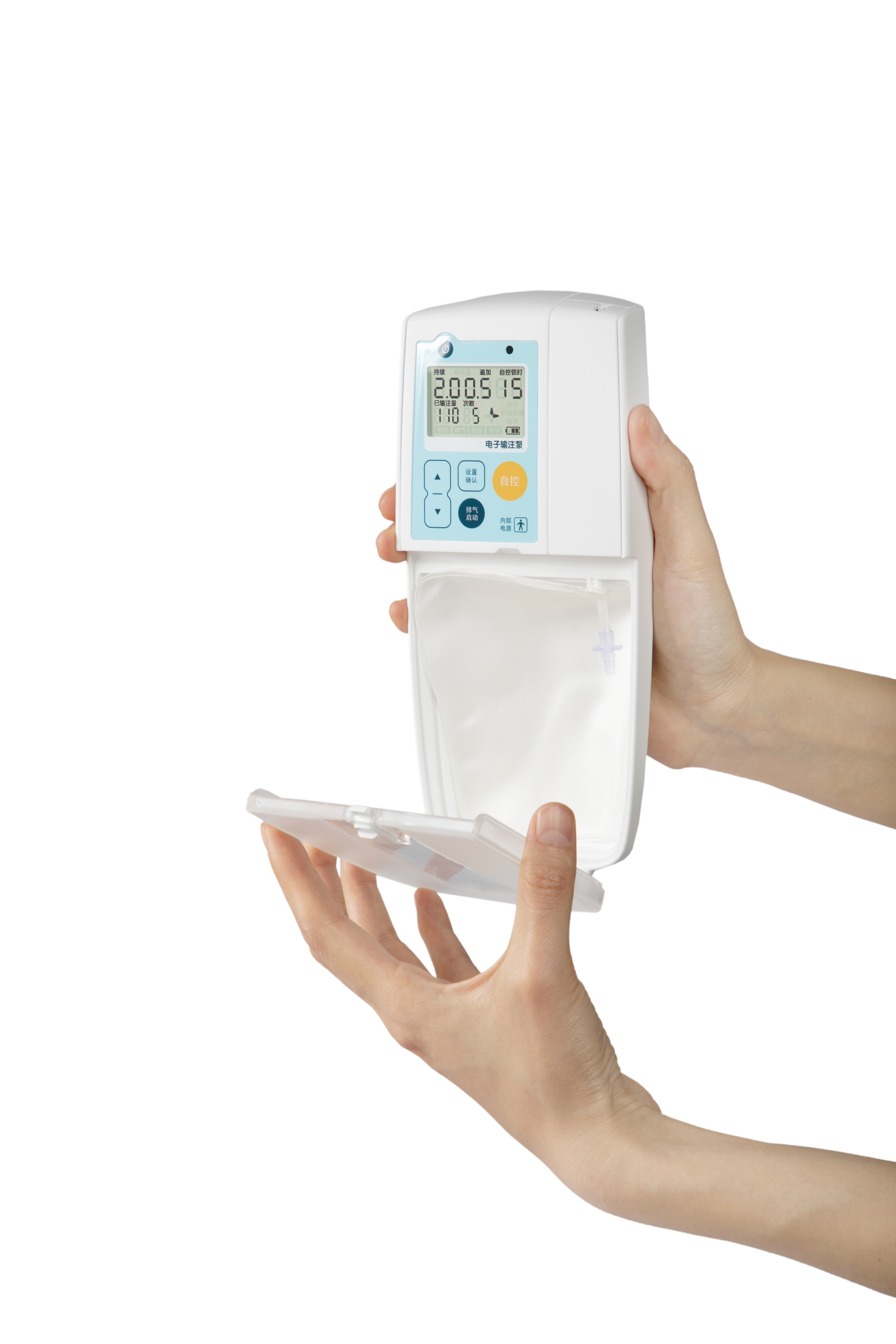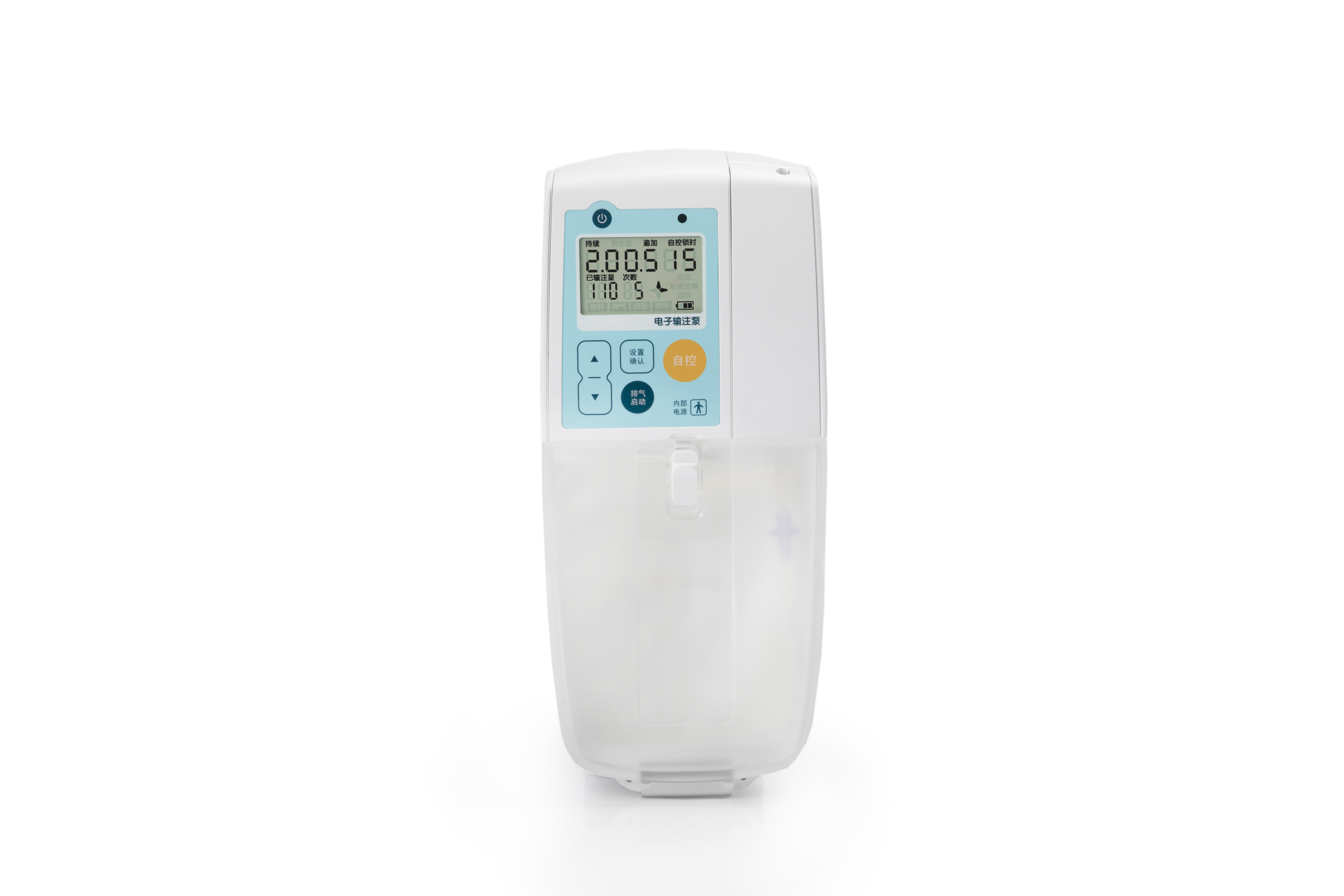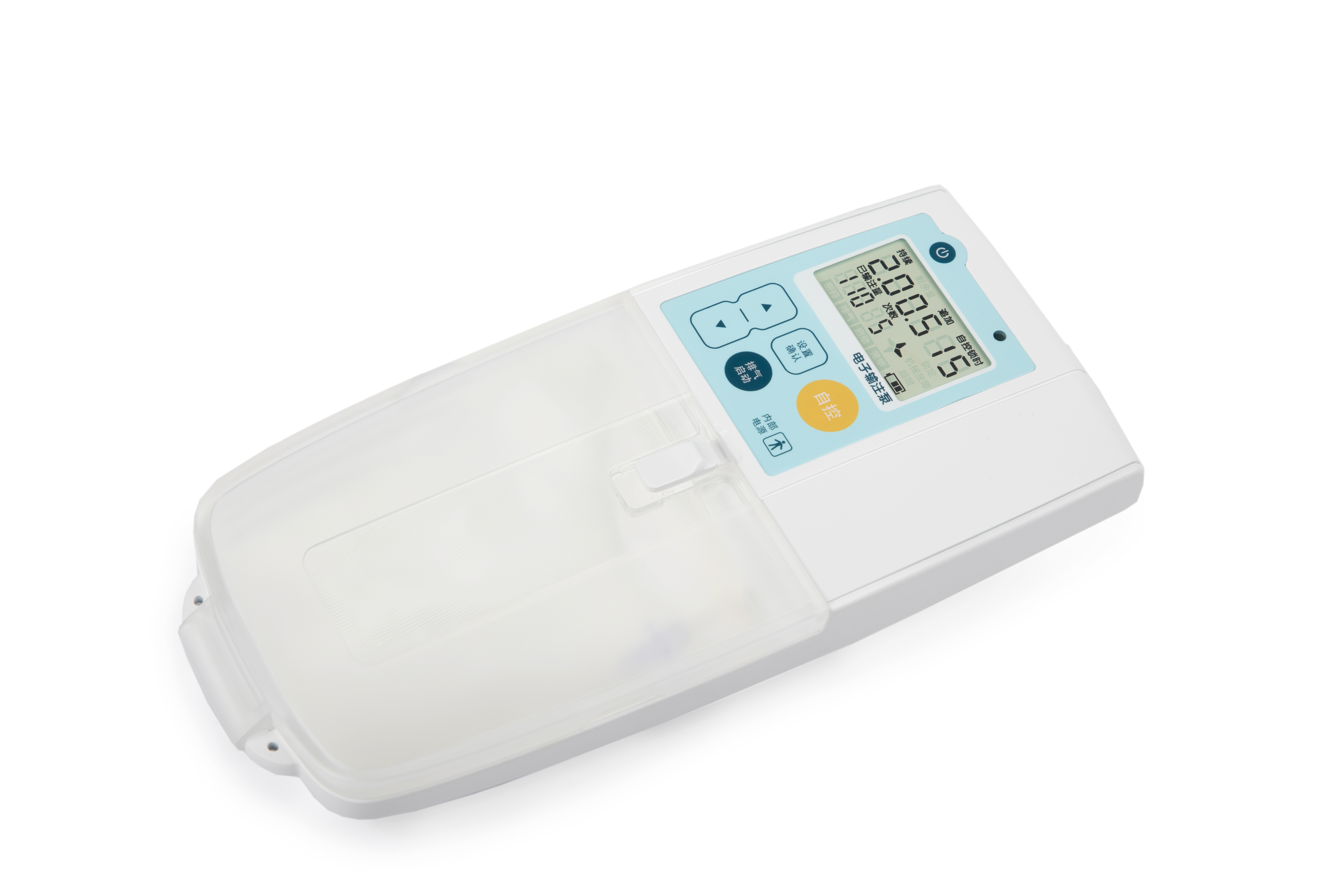The UK IDC medical product design team partnered with a well-known domestic medical device company to support the development of a new generation of patient-controlled analgesia (PCA) pumps.
The initial goal of the project is to improve the sustainability compliance issues caused by this generation of PCA products that are disposable and their electronic and plastic waste. With this design opportunity, the company hopes to provide users with better reliability and ease of use, and reduce the cost of disposable consumables.
The PCA pump allows the patient to self-control in a safe manner, with "on demand" medication infused through an intravenous catheter to relieve pain.
The PCA pump usually contains a reusable controller and peristaltic pump, electronic and mechanical components for controlling the pump, and a disposable medical bag.
Disposable PCA pumps are all discarded after use, while some other products on the market, including removable cartridges in the framework, can retain more reusable parts, while reducing the waste of materials to disposable plastic bags.
The previous generation products of the enterprise are disposable products. This product also has room for improvement in accuracy and usability, and its appearance is not attractive to the hospital procurement department. IDC UK needs to address these issues in the design and development of next-generation products to minimize single-use waste and keep manufacturing costs as low as possible.
At the beginning of the project, the company collected feedback on some existing products based on the use of hospital users, and provided the design team with complete technical requirements for the purpose of meeting regulatory requirements.
Subsequently, the UK IDC product design team undertook all the design and development tasks from research to mass production molds. This includes product architecture definition, industrial design, user interface design, electronics and software development, detailed engineering, prototyping and testing, and the preparation of appropriate data for mass production molds.
One of the biggest challenges in the project was to improve the accuracy of the peristaltic pump system.
Due to the tight relationship between components, there are a large number of variables in the PCA pump that need to be controlled, and the accuracy is closely related to the control of tolerances.
Since the displacement distance of the extruded pipe element is very small, small changes in geometry can have a great influence on the efficiency of the pump. Poor control may not only cause drug leakage, but may even cause problems such as drug or blood backflow from the body due to the patient's blood pressure being higher than the hydraulic pressure. Therefore, precision control is the key to creating a completely reliable device.
In the end, the new product designed and developed to minimize disposable waste, the only disposable elements are the medicine bag and a small box that contains the silicone tube for suction, rather than the box that wraps the entire medicine bag. Since these disposable components are replaced after each patient use, reducing the possibility of fitting variability becomes another new challenge.
The IDC team in the UK overcame this problem through comprehensive tolerance analysis and manufacturing control to make the design as precise as possible to ensure the accuracy and repeatability of the pump.
All technical improvements and design of the equipment are very satisfactory to the enterprise. Compared with competitors' products, this product has a slender appearance, beautiful appearance and easier operation.



本作品版权归 英国IDC产品设计 所有,禁止匿名转载及个人使用,任何商业用途均需联系原作者。

新用户?创建账号
登录 重置密码

请输入电子邮件以重置密码。
6666
good
High-tech
full of personality